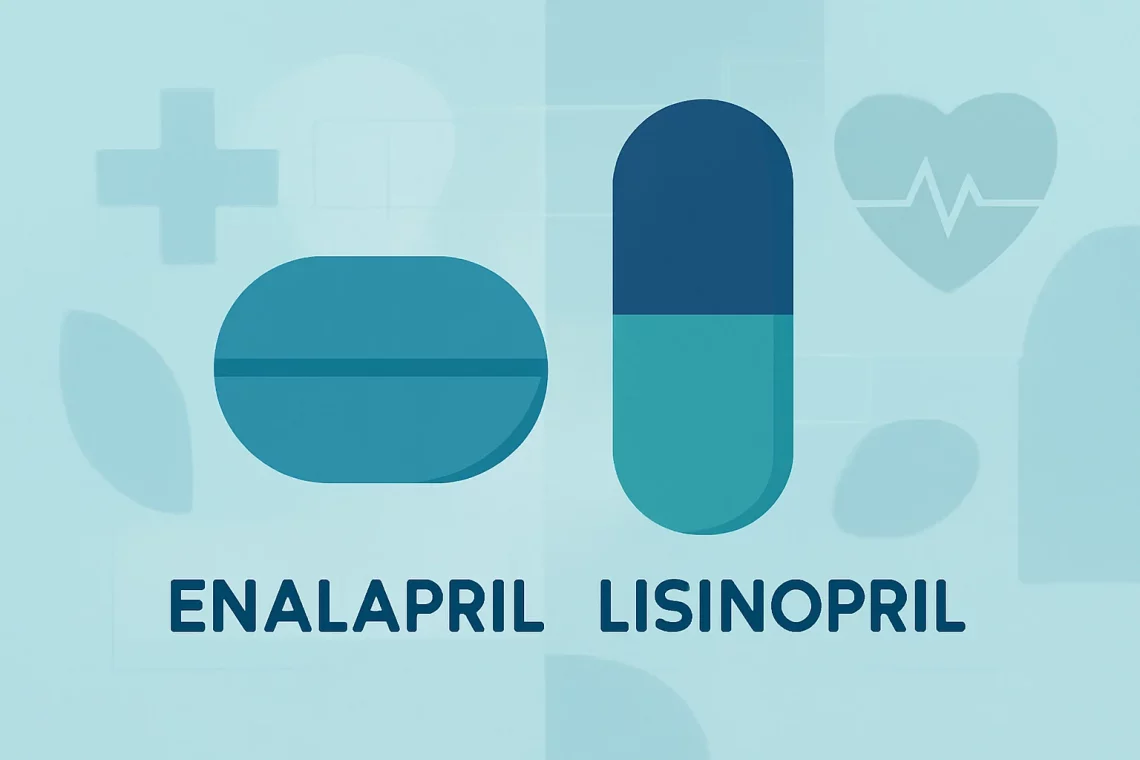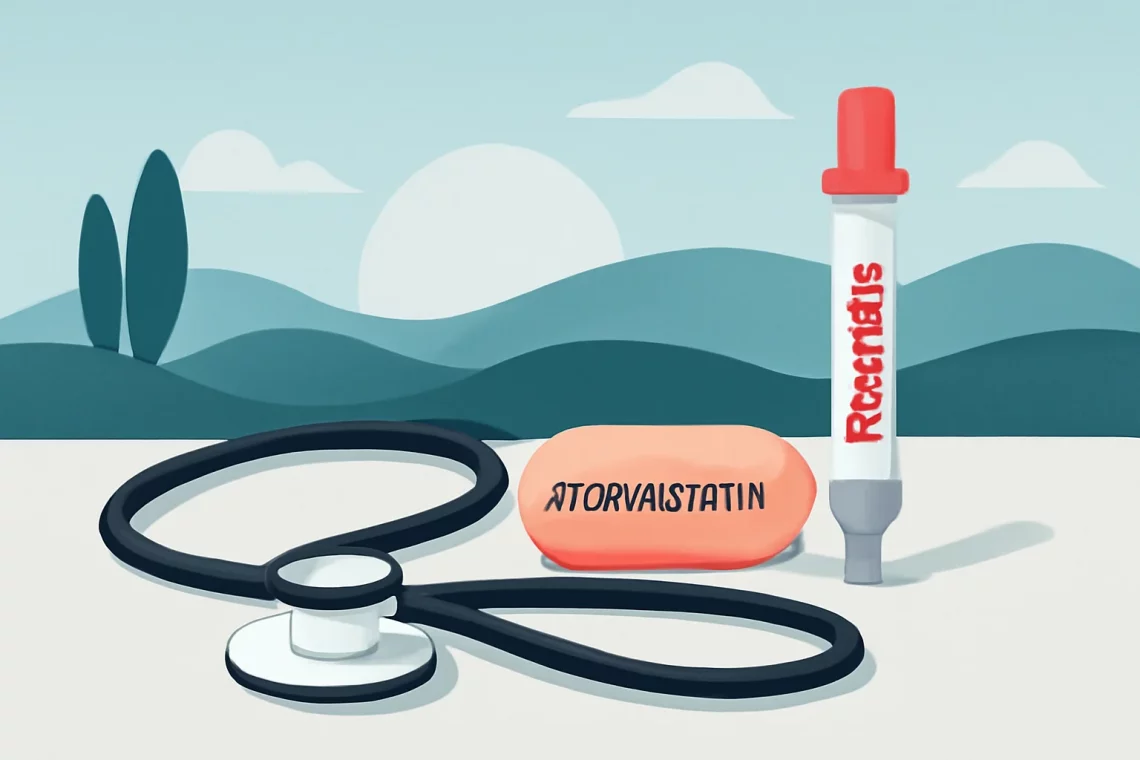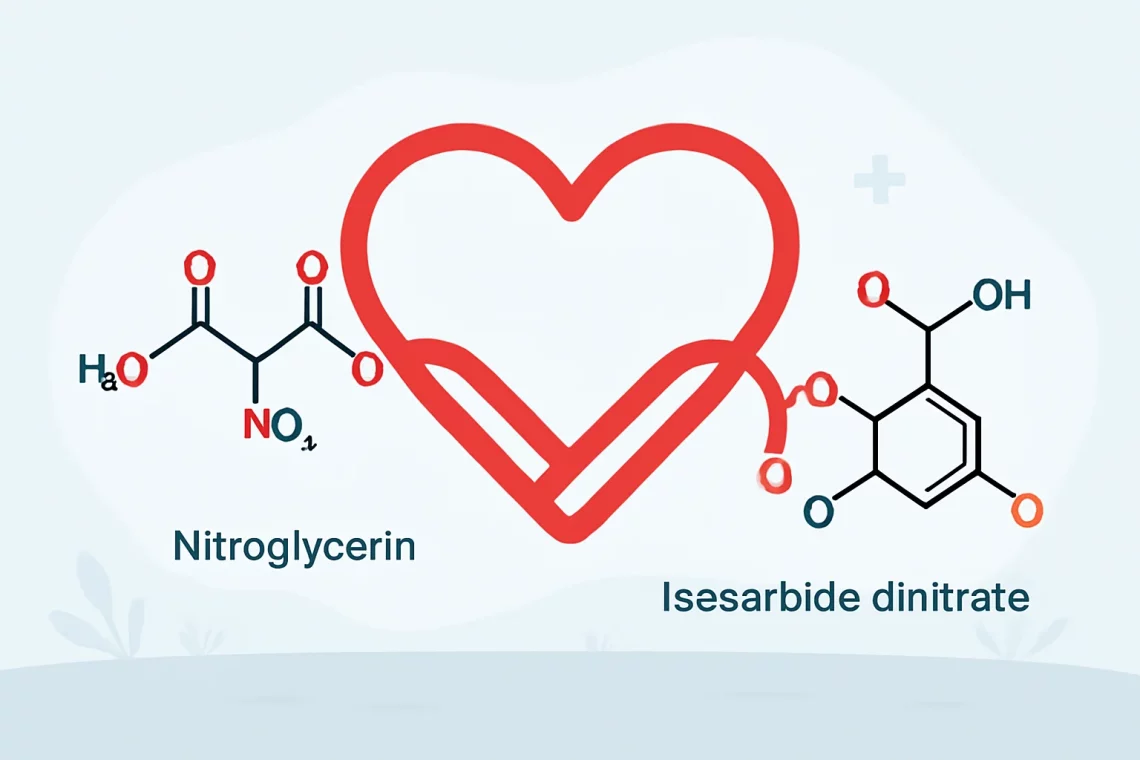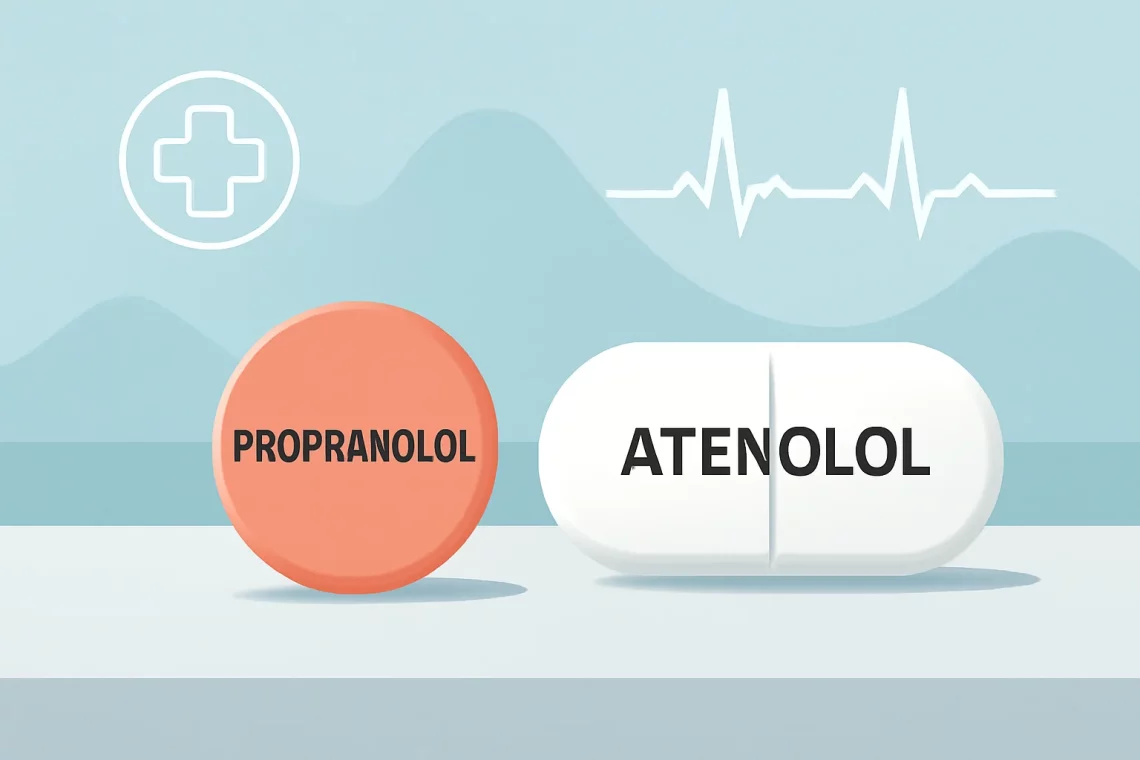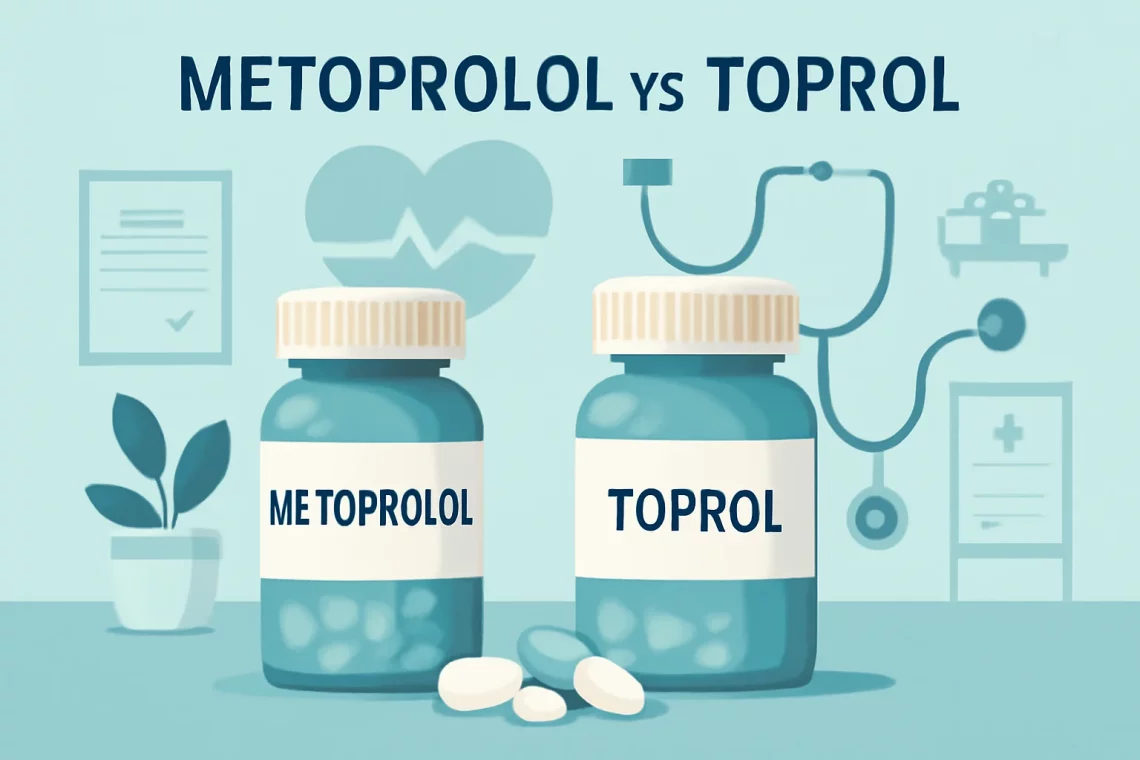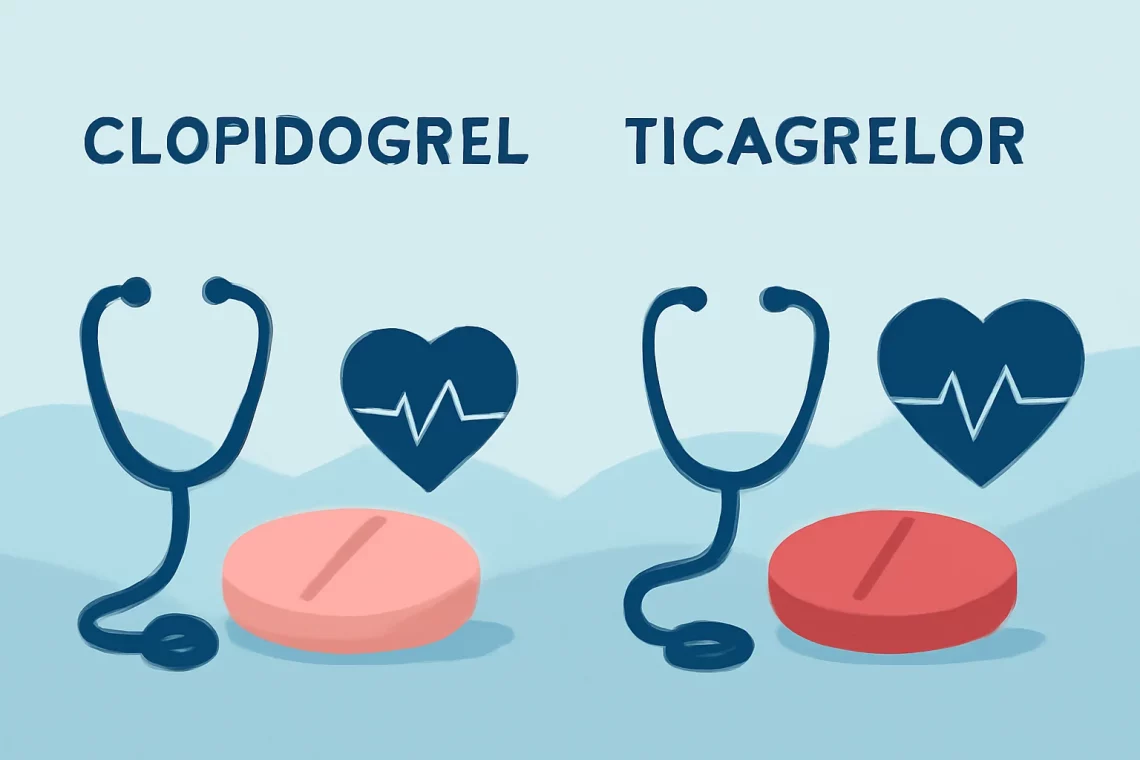-
Enalapril vs Lisinopril: Which Medication is Right for You?
Enalapril and lisinopril are two widely used medications in the treatment of hypertension and heart failure. Both belong to the class of medications known as ACE inhibitors, which play a crucial role in managing blood pressure by relaxing blood vessels. This leads to improved blood flow and reduced workload on the heart. Despite their similarities, enalapril and lisinopril possess distinct characteristics that may influence a healthcare provider’s choice of one over the other for a particular patient. The decision often hinges on various factors, including the patient’s overall health profile, other underlying conditions, and potential interactions with other medications. The way these drugs are metabolized and eliminated from the body…
-
Atorvastatin vs Vytorin: Which Cholesterol Medication Is Right for You?
Atorvastatin and Vytorin are two commonly prescribed medications that play a significant role in managing cholesterol levels and reducing the risk of cardiovascular diseases. Statins are a class of drugs that include atorvastatin, which primarily works by inhibiting an enzyme involved in cholesterol production in the liver. On the other hand, Vytorin combines two active ingredients, ezetimibe and simvastatin, to lower cholesterol levels through dual mechanisms: reducing cholesterol absorption in the intestines and decreasing its production in the liver. The global prevalence of high cholesterol levels and associated cardiovascular conditions has made the management of these health issues increasingly important. Millions of people rely on medications like atorvastatin and Vytorin…
-
Atorvastatin vs Repatha: Which Cholesterol Treatment is Better?
Atorvastatin and Repatha represent two distinct approaches to managing cholesterol levels and reducing cardiovascular risk. As cardiovascular diseases continue to be a leading cause of mortality worldwide, the importance of effective cholesterol management cannot be overstated. Elevated levels of low-density lipoprotein (LDL) cholesterol are a significant risk factor for heart attacks and strokes, prompting the need for medications that can effectively lower these levels. Atorvastatin, a member of the statin family, has been widely used for years as a first-line treatment for high cholesterol. It works by inhibiting an enzyme involved in cholesterol production in the liver, thus reducing LDL cholesterol levels. On the other hand, Repatha, a monoclonal antibody,…
-
Nitroglycerin vs Isosorbide: Which is Best for Your Heart Health?
Nitroglycerin and isosorbide are two important medications commonly used in the management of cardiovascular diseases, particularly angina pectoris, a condition characterized by chest pain due to reduced blood flow to the heart. Both of these drugs belong to a class of medications known as nitrates, which work by dilating blood vessels to improve blood flow and decrease cardiac workload. This dilation leads to increased oxygen supply to the heart muscle, alleviating the symptoms of angina. Despite their similar mechanisms, nitroglycerin and isosorbide differ in their formulations, onset of action, duration, and specific indications. Understanding these differences is crucial for patients and healthcare providers when determining the most appropriate treatment plans…
-
Propranolol vs Atenolol: Which Beta-Blocker Is Right for You?
Propranolol and Atenolol are two widely prescribed medications that belong to the class of drugs known as beta-blockers. These medications are primarily used to manage various cardiovascular conditions, such as hypertension, angina, and arrhythmias. They can also be effective in treating other conditions, including anxiety and migraine prevention. Both drugs work by inhibiting the effects of adrenaline on the body’s beta receptors, which leads to a decrease in heart rate and blood pressure. Despite their similarities, Propranolol and Atenolol possess distinct pharmacological properties and clinical applications that can influence a physician’s choice of treatment. Understanding these differences is essential for patients and healthcare providers alike, as it can significantly impact…
-
Metoprolol vs Toprol: Understanding the Key Differences and Uses
Metoprolol and Toprol are two terms often used interchangeably in the world of cardiovascular medications. These medications belong to a class known as beta-blockers, which are primarily used to manage high blood pressure, heart rhythm disorders, and other heart-related conditions. Despite their similarities, it is crucial to understand that Metoprolol and Toprol, while closely related, are not exactly the same. Their differences can significantly impact how they are prescribed and how they function in the body. Beta-blockers like Metoprolol work by blocking the effects of adrenaline on the heart and blood vessels. This action leads to a decrease in heart rate and blood pressure, making it easier for the heart…
-
Atorvastatin vs Rosuvastatin: Which Statin is Right for You?
Atorvastatin and rosuvastatin are two widely prescribed medications belonging to a class known as statins, which are primarily used to lower cholesterol levels in the blood. These medications play a crucial role in managing hyperlipidemia and reducing the risk of cardiovascular diseases such as heart attacks and strokes. Statins work by inhibiting a specific enzyme involved in the production of cholesterol in the liver, thereby helping to lower levels of low-density lipoprotein (LDL) cholesterol, often referred to as “bad cholesterol.” With the increasing prevalence of cardiovascular diseases, the importance of effective cholesterol management has gained significant attention. Many individuals have turned to statins as an integral part of their treatment…
-
Clopidogrel vs Ticagrelor: Which Antiplatelet Drug is Better?
Clopidogrel and ticagrelor are two antiplatelet medications commonly prescribed for patients at risk of thrombotic cardiovascular events, such as heart attacks and strokes. Both medications play a critical role in managing cardiovascular diseases by preventing the aggregation of platelets, which can lead to the formation of blood clots. While they share a common goal of reducing the risk of serious cardiovascular events, they differ in their mechanisms of action, dosing, and potential side effects. Understanding the nuances between clopidogrel and ticagrelor is essential for healthcare providers and patients alike. As cardiovascular diseases remain a leading cause of morbidity and mortality worldwide, the choice of antiplatelet therapy can significantly impact patient…
-
Understanding Pimobendan 5mg: Benefits and Usage in Heart Health
Pimobendan is a medication that has gained significant attention in recent years, particularly in the realm of veterinary medicine and cardiology. Originally developed for the treatment of heart conditions in dogs, its application has expanded as research continues to unveil its potential benefits for heart health. The heart is a vital organ that plays a crucial role in maintaining the overall well-being of both humans and animals. As cardiovascular diseases remain one of the leading causes of morbidity and mortality worldwide, finding effective treatments is paramount. Pimobendan is classified as an inodilator, which means it has both inotropic and vasodilatory effects. This dual action helps improve the heart’s efficiency while…
-
How Many Calories Can You Burn in the Sauna During a Session?
Sauna sessions have long been associated with relaxation and wellness, providing a serene environment to unwind while enjoying the therapeutic benefits of heat. This age-old practice, rooted in various cultures, not only promotes mental clarity and relaxation but also encourages physical rejuvenation. As individuals seek innovative ways to enhance their fitness routines, the sauna has emerged as a popular adjunct to exercise, leading many to wonder about its caloric burning potential. The warmth of a sauna induces sweating, which many equate with weight loss and calorie expenditure. However, the relationship between sauna use and calorie burning is often misunderstood. While the immediate effects of heat can lead to temporary weight…
